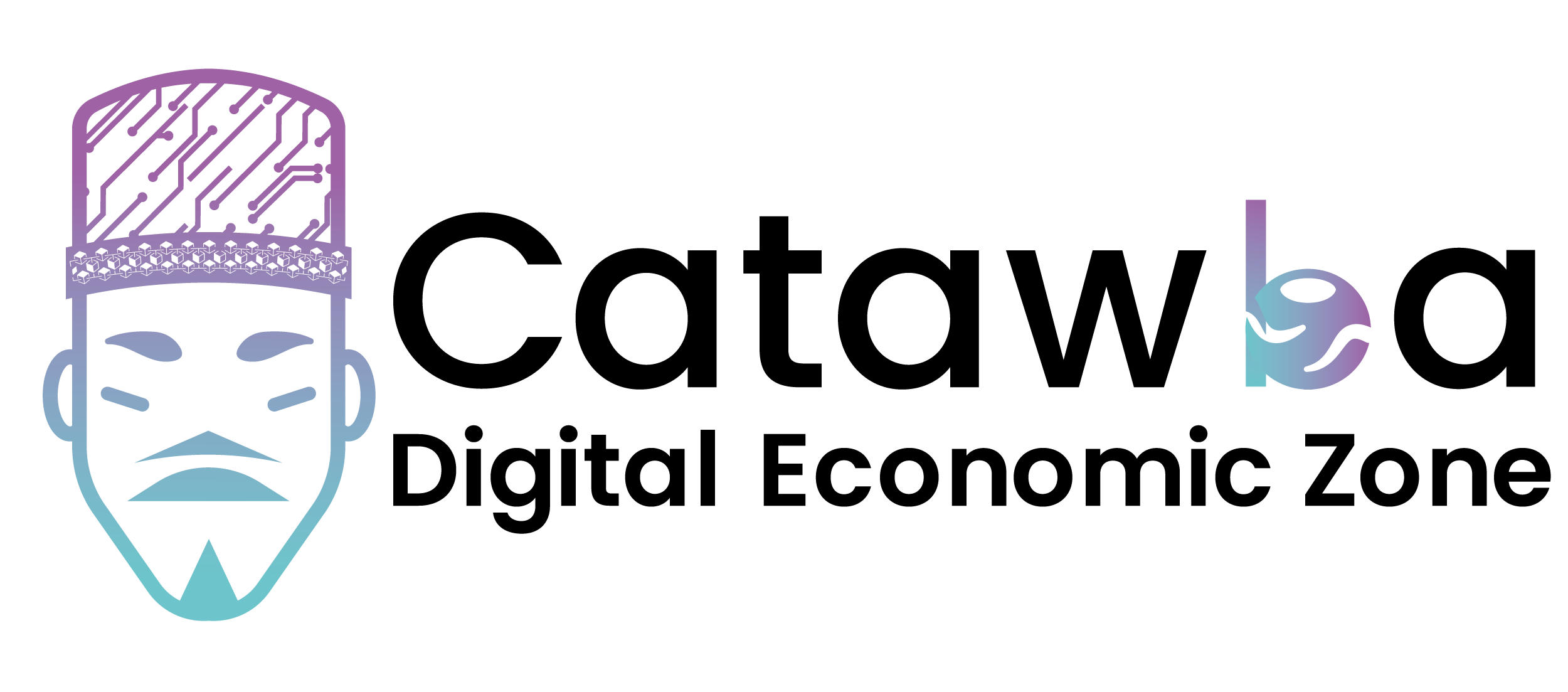Catawba Digital Economic Zone
Explore the advantages of the Catawba Digital Economic Zone as a Decentralized Autonomous Organizations (DAOs) jurisdiction.

Updated 27th October 2023*
This post is part of our research on DAO-friendly global jurisdictions.
Catawba's Decentralized Autonomous Organizations (DAO) Regulation
https://catawbadigital.zone/dao-regulation-explained/#:~:text=The Catawba Digital Economic Zone,Limited Liability Company (LLC).
Overview of Jurisdiction:
Catawba's Decentralized Autonomous Organizations (DAO) Regulation:
- Definition and Election of DAO Status: A DAO can be either a limited liability company (LLC) or an unincorporated nonprofit association. To convert into a DAO, these entities must amend their certificates of organization or governing principles to include a specific statement declaring their status as a DAO. Their name should reflect the DAO status (e.g., DAO LLC or DAO UNA).
- Formation: The formation of a DAO requires obtaining a digital identifier for each of its members and fulfilling other requirements as outlined in the Zone Civil Code. The certificate of organization or governing principles must include a publicly available identifier of the smart contract used to manage the DAO.
- Certificate of Organization or Governing Principles: This certificate or set of principles needs to include a statement identifying the organization as a DAO, along with other matters required by the Zone Civil Code. It should also address various aspects related to the relations among members, voting rights, amendments to the agreement, dispute resolution, etc.
- Amendment or Restatement of Certificate of Organization or Governing Principles: These should be amended if there is a change in the name of the DAO, a correction of a false statement, or an update in the smart contracts which materially affects the provisions of Section 106.
- Operating Agreement: The obligations, rights, duties of the members and operation of a DAO may be supplemented by an operating agreement, which could also be a smart contract.
- Management and Meetings: The management of a DAO is vested in its members and potentially the smart contracts. The meetings can be held over an extended period of time in an asynchronous manner.
- Standards of Conduct for Members: Members are subject to the implied contractual covenant of good faith and fair dealing unless otherwise specified.
- Membership Interests and Voting: Membership interests are calculated by dividing a member's contribution of digital assets by the total amount of assets contributed at the time of a vote. Otherwise, each member shall have one membership interest and one vote.
- Rights of Members: Members and dissociated members do not have the right to separately inspect or copy records of a DAO, as long as the information is available on an open blockchain.
- Withdrawal of Members: A member may withdraw from a DAO as per the terms set forth in the certificate of organization, governing principles, smart contracts, or the operating agreement. The withdrawn member may forfeit all membership interests unless otherwise specified.
- Dissolution: A DAO can be dissolved due to various circumstances, including expiration of the duration, by a majority vote of members, a year of inactivity, or lack of a lawful purpose, among other reasons.
Legal Frameworks:
The legal framework outlined in Catawba's Decentralized Autonomous Organizations (DAO) Regulation covers several key aspects related to the establishment, management, and operation of DAOs. Here is a detailed analysis:
Establishment of a DAO:
- To establish a DAO, one needs to form either a Limited Liability Company (LLC) or an Unincorporated Nonprofit Association, with a clear statement in its certificate of organization, operating agreement, or governing principles that the company is a DAO (Section 104).
- DAOs can be formed by anyone who can obtain a digital identifier for each of its members (Section 105).
- The registered name for a DAO must include the wording or abbreviation to denote its status as a DAO, such as "DAO LLC" or “DAO UNA” (Section 104).
- The certificate of organization or governing principles must establish how the DAO will be member-managed, including the extent to which the management will be smart-contract managed (Section 104).
- It should also provide a publicly available identifier of any smart contract directly used to manage, facilitate, or operate the DAO (Section 105).
Management and Operations of a DAO:
- DAOs should be member-managed or managed by members and any applicable smart contracts. All smart contracts used by a DAO should be capable of being updated, modified, or otherwise upgraded (Section 109).
- Meetings can involve asynchronous participation, where communications and votes are held over an extended period (Section 109).
- The certificate of organization or governing principles shall govern relations among the members and between the members and the DAO, rights and duties, activities of the DAO, amendment of the operating agreement, rights and voting rights of members, withdrawal of membership, etc. (Section 106).
- The obligations, rights, and duties of the members and operation of a DAO can be supplemented by an operating agreement, which can be a smart contract (Section 108).
Legal Protections and Regulations:
- Members of a DAO do not have any fiduciary duty to the organization or any member, unless provided for in the certificate of organization, governing principles, or operating agreement (Section 110).
- Members and dissociated members have no right to separately inspect or copy records of a DAO if the information is available on an open blockchain (Section 112).
- A member can only withdraw from a DAO in accordance with the terms set forth in the certificate of organization, governing principles, the smart contracts, or the operating agreement (Section 113).
- DAOs can be dissolved under several circumstances, including the expiration of the fixed period for the organization, by vote of the majority of members, failure to approve any proposals or take any actions for a period of one year, among others (Section 114).
- DAOs that fail to provide the digital identifiers of all members or provide fraudulent or deliberately misleading reports can lose their limited liability protection and face dissolution (Section 105).
In summary, Catawba's DAO Regulation provides a comprehensive legal framework for the establishment and management of DAOs, providing clear guidelines for their operation, the rights and duties of members, and the circumstances under which a DAO can be dissolved. These regulations are aimed at providing a transparent, fair, and orderly operation of DAOs.
Benefits and Challenges:
The regulation of Decentralized Autonomous Organizations (DAOs) in Catawba offers numerous benefits and challenges:
Benefits:
- Formal Recognition: This regulation provides legal recognition and legitimacy to DAOs, which helps in increasing trust and acceptance of these organizations among the public, investors, and other stakeholders.
- Transparency and Accountability: The requirement to have the certificate of organization or governing principles accessible to all and a publicly available identifier of any smart contract used enhances transparency. This openness can increase trust among members and ensure that everyone can see and understand the rules of the organization.
- Limited Liability: As with traditional companies, members of a DAO can enjoy limited liability, meaning that their personal assets are not at risk if the DAO is sued or goes bankrupt.
- Flexibility: The regulation provides flexibility in the management and operations of DAOs. For example, meetings can involve asynchronous participation, allowing for distributed and decentralized operations.
- No Fiduciary Duty: Unless stated otherwise, members of a DAO do not have any fiduciary duty to the organization or any member. This can simplify the decision-making process, as members can act in their own interests without worrying about legal repercussions.
Challenges:
- Complexity and Understanding: The use of blockchain technology and smart contracts, the primary foundation of DAOs, requires a significant degree of technological understanding. This could be a barrier to some people and make DAOs less accessible to the general public.
- Governance Issues: The asynchronous nature of DAO decision-making could potentially slow down important decisions and lead to governance issues.
- Smart Contract Risks: The heavy reliance on smart contracts comes with potential risks. If there are bugs or security vulnerabilities in these contracts, they could be exploited and lead to loss of funds or other negative outcomes.
- Regulatory Compliance: DAOs, being globally distributed, could face difficulties in complying with different regulatory environments around the world. This could pose challenges in terms of operations and regulatory compliance.
- Anonymous Members: The regulation allows for anonymous participation, which, while promoting privacy, can lead to potential misuse and fraud.
- Legal Precedent: Since the legal treatment of DAOs is still relatively new, there's a lack of legal precedent to guide how disputes or other legal issues will be handled. This could lead to uncertainties and potential legal risks.
In conclusion, while the Catawba's DAO regulation provides many advantages and legal protections, it also comes with significant challenges. The success of these organizations in the long run would likely depend on how well they navigate these challenges.
Case Studies:
No database
*Please note that the information in this post is for informational purposes only. It should not be construed as legal, tax, investment or other advice.*
